How To Make A Lemon And Baking Soda Face Mask
Say 'goodbye' to blemishes and rough patches with this DIY exfoliating formula.
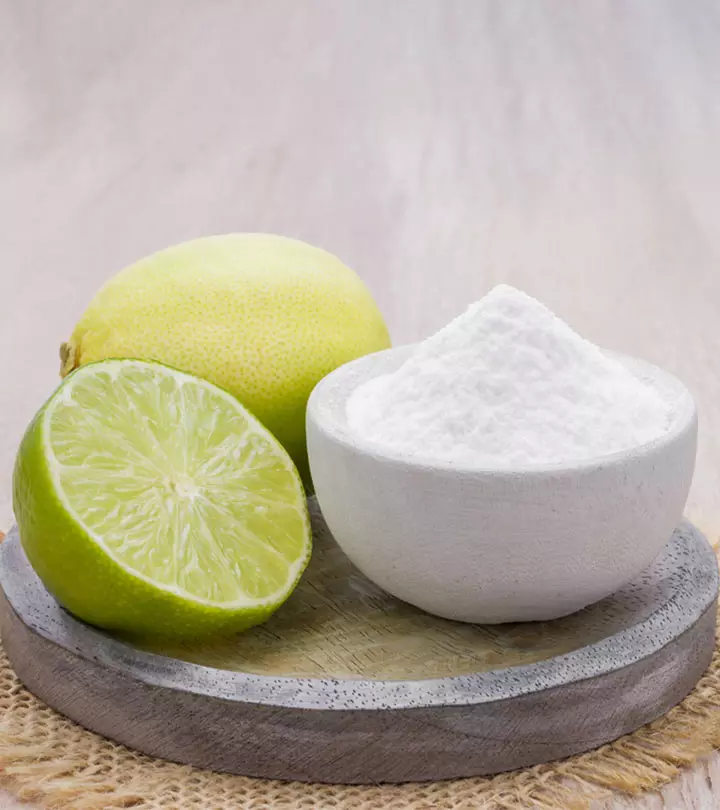
Image: Shutterstock
Lemon and baking soda are commonly found in every kitchen. Lemon juice is rich in vitamin C that helps rejuvenate the skin, and baking soda has a rough texture that helps exfoliate your skin. So, how do you make lemon and baking soda face masks? This article explores how to use these two kitchen ingredients in the form of a face mask to help treat many skin issues. Keep reading.
In This Article
Are Lemon And Baking Soda Good For Your Skin?

One of the major components of lemon juice is vitamin C (1). Vitamin C is commonly used for treating the signs of aging as well as brightening the skin tone. This is because of its ability to synthesize collagen in the skin. Additionally, vitamin C is known to protect your skin from the harmful UV rays of the sun (2).
Meanwhile, the rough texture of baking powder works as a physical exfoliant on the skin and may help clean out your pores.
Hence, using a lemon juice and baking powder face mask can help you address many skin issues. But keep in mind that both of them are potential irritants and should be used only on normal skin without any sensitive areas.
A lemon baking soda mask is a natural DIY skincare remedy that can help with exfoliation and controlling oily skin.
Now that you know the individual benefits of lemon and baking soda, let’s see what these two can do together for our faces.
Key Takeaways
- Lemon juice is rich in vitamin C which is commonly used for treating the signs of aging, brightening skin tone, and protecting the skin from the harmful UV rays of the sun.
- Baking powder has a rough texture that works as a physical exfoliant on the skin and may help clean out clogged pores.
- The pale yellow mask you get from combining baking soda and lemon juice can lighten dark spots, detoxify the skin and remove blackheads and whiteheads.
Benefits Of Lemon And Baking Soda Mask
1. Detoxify The Skin
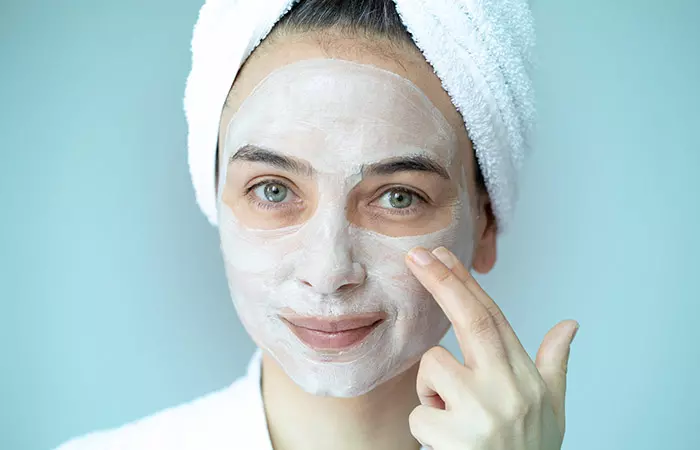
Baking soda has a grainy texture that can work as a physical exfoliant on your face and help in getting rid of dead skin cells. Meanwhile, lemon juice contains antioxidants that can fight free radical damage and detox the skin (2). So, lemon and baking soda together may work as a detoxifying mask for your face.
2. Removes Blackheads
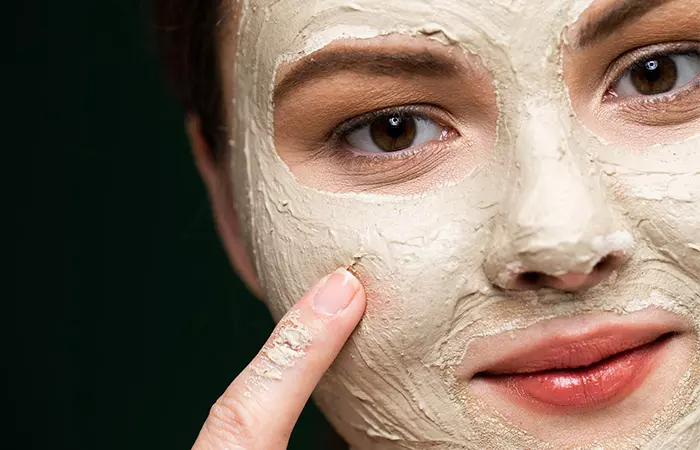
Blackheads form when dirt gets stuck in the open pores of your skin. Since lemon juice helps remove oil and baking soda helps in exfoliating the face, this face mask may come in handy for removing blackheads.
3. Removes Whiteheads
Similar to blackheads, whiteheads form due to clogged dirt around your nose. A lemon and baking soda mask may help in removing these whiteheads.
4. Lightens Dark Spots And Hyperpigmentation
Lemon juice decreases melanini A broad term for a darkish natural pigment occurring in most organisms, particularly in the eyes, skin and hair. formation and hyperpigmentationi A condition with excessive melanin production resulting in areas of the skin turning darker than its surrounding surface. (2). And, anecdotal evidence suggests that baking soda lightens the skin. Hence, using baking soda and lemon juice for dark spots can help lighten them.
5. Soothes Oily Skin
The combination of lemon and baking soda may also have a soothing effect on oily skin. As the exfoliating properties of both ingredients clear out the excess oil and debris from the pores, the skin gets to breathe easier. However, if your skin is sensitive, it is best to speak to a dermatologist before going for this mask.
Now let’s find out how to make this face mask.
How To Use Lemon And Baking Soda On Your Face
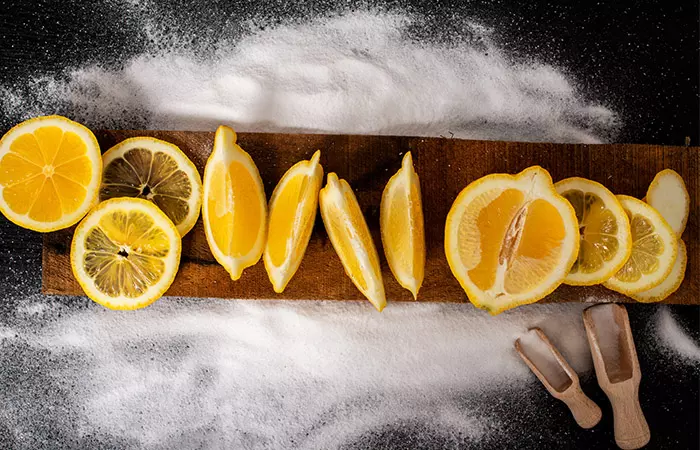
There are a couple of ways to make a lemon juice and baking soda face mask. Check them out below:
Caution: Before you use this mask, it is best to perform a patch test to check for any allergic reactions. Also, avoid using the mask on areas with open cuts or sunburned skin to prevent further irritation. Additionally, lemon juice makes your skin photosensitive (i.e., it causes skin redness, itching, and burning). Therefore, apply sunscreen before stepping out into the sun after using these face masks.
1. How To Make A Lemon And Baking Soda Face Mask
What You Need
- 1 tablespoon of lemon juice
- 2 tablespoons of baking soda
What To Do
- Mix the lemon juice and baking soda in a glass bowl. Baking soda and lemon juice react to form a fizzy, bubbling solution. Do not stop when this happens. Keep on mixing until you get a runny, pale yellow paste.
- Apply and rub this paste all over your face and neck. You can scrub the paste on your T-zonei The middle part of a person's face comprising the forehead, nose, and chin which is oilier than the rest of the face. or other oily areas on your face.
- Keep it on for a maximum of 15 minutes to avoid redness.
- Gently wipe the mask off with a washcloth dipped in lukewarm water.
- Wash your face with cold water to close the opened pores on your face.
 Quick Tip
Quick TipHow Often You Should Do This
Do it once a week.
Note: This lemon juice and baking soda face mask may feel a bit tingly on your skin, but it is quite normal. However, if you feel a burning sensation on your face, wash it off immediately and dont use it again.
2. How To Make A Lemon And Baking Soda Face Mask With Honey
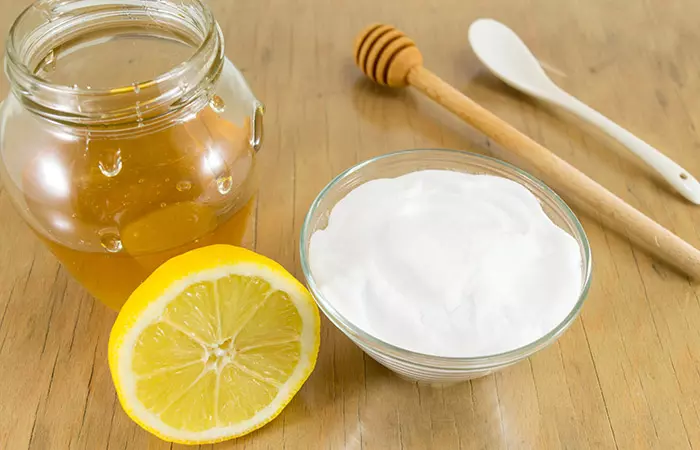
Honey possesses good antibacterial properties (3). Thus, it may help in effectively eliminating the bacteria that may be residing in your pores and wreaking havoc on your skin. Honey can also moisturize, soften, and soothe your skin (4). Thus, it makes this face pack more suitable for dry, sensitive skin.
What You Need
- 1 tablespoon of honey
- 1 tablespoon of lemon juice
- 1 tablespoon of baking soda
What To Do
- Mix the honey, lemon juice, and baking soda in a glass bowl.
- Apply the mixture all over your face and neck.
- Leave the mixture on your face for a maximum of 15 minutes before washing it off with lukewarm water.
 Quick Tip
Quick TipHow Often You Should Do This
Do it once a week.
Tasha, a blogger, recounts her experience with a lemon and baking soda face mask and the effect it had on the blackheads on her face. She writes, “I’ve used this mixture twice now, and my blackhead problem skin is looking so much better. My cysts and large pimples get smaller with every use, and the redness starts to go away immediately! (i)”
Infographic: The 411 On A Lemon And Baking Soda Face Mask
Do you want to get rid of those dark spots and blackheads and clean your dirty pores but can’t find a natural remedy? Well, a lemon and baking soda mask will do the trick for you. These two natural ingredients have antioxidant and exfoliating properties that will clean your pores and keep your skin clean.
Check out our infographic below and learn how to use lemon and baking soda for your skin! Illustration: StyleCraze Design Team
Takeaway
Lemon-baking soda masks are one of the most effective ways to treat skin issues as both ingredients offer several benefits to the skin. Lemon is rich in vitamin C and fights against the aging signs, and the rough texture of baking soda helps exfoliate your skin. When these two are combined, you can achieve youthful and glowy skin. Following the recipes mentioned above will help you make lemon-baking soda masks to improve your skin texture and brighten the skin. However, do not forget to apply sunscreen while going out after using it, as lemon will make your skin photosensitive.
Frequently Asked Questions
Do lemon and baking soda brighten skin?
Yes. Lemon and baking soda can exfoliate your skin and brighten it. However, the blend may cause allergic reactions. Therefore, do a patch test before using it.
Can baking soda damage skin?
Yes. Baking soda is abrasive and it may cause skin irritation, rashes, and redness.
Is baking soda good for pimples?
It may help as baking soda has a drying effect. However, we do not recommend using baking soda on pimples. Use doctor-prescribed acne medication to soothe pimples and breakouts.
Illustration: How To Make A Lemon And Baking Soda Face Mask
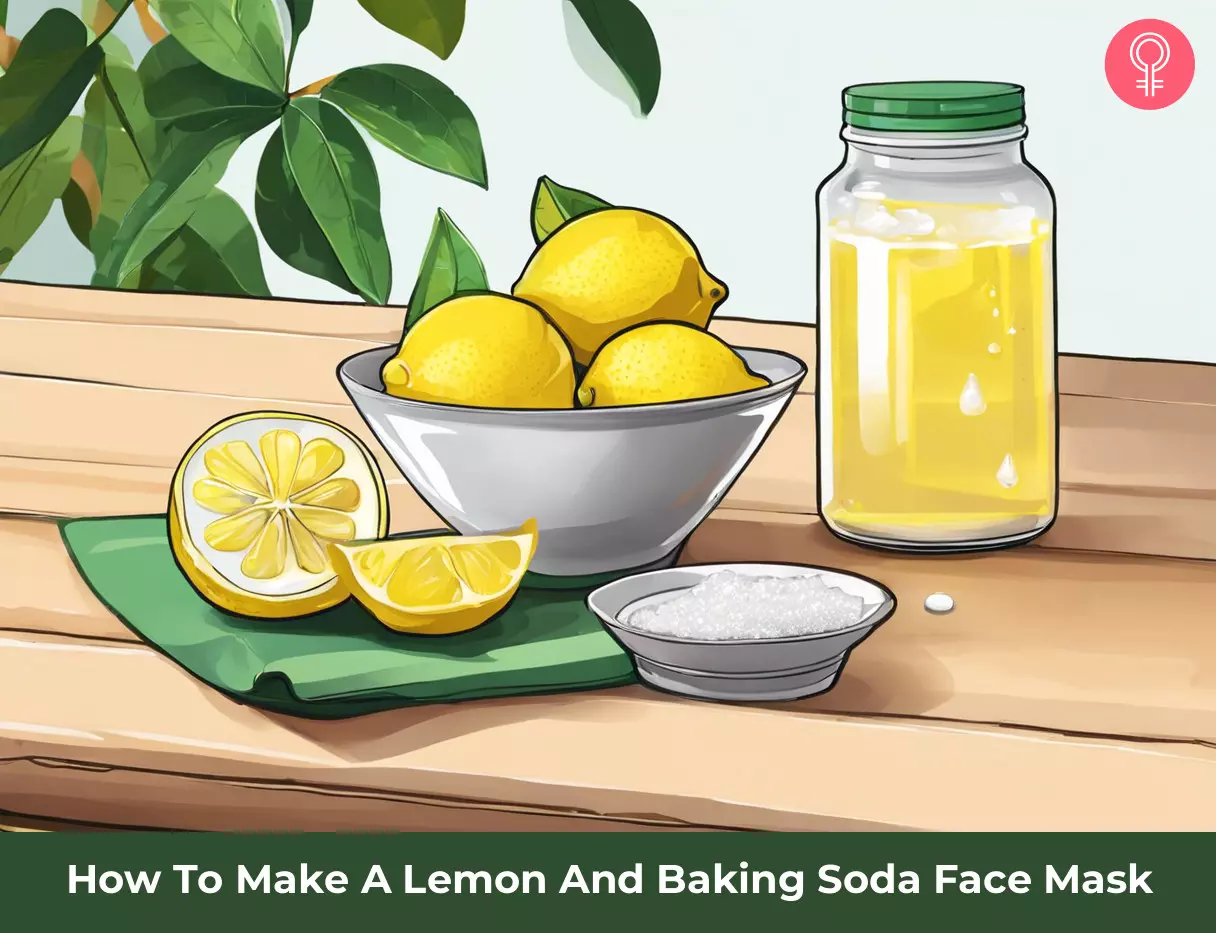
Image: Stable Diffusion/StyleCraze Design Team
Discover the rejuvenating effects of a homemade baking soda and lemon juice face mask. Watch the video to give your face the pampering it deserves and get radiant and healthy skin.
Personal Experience: Source
StyleCraze's articles are interwoven with authentic personal narratives that provide depth and resonance to our content. Below are the sources of the personal accounts referenced in this article.
i. Home Remedy Review – Lemon Baking Soda Mask!https://glossandliner.wordpress.com/2013/06/19/home-remedy-review-lemon-baking-soda-mask/
References
Articles on StyleCraze are backed by verified information from peer-reviewed and academic research papers, reputed organizations, research institutions, and medical associations to ensure accuracy and relevance. Read our editorial policy to learn more.
- Lemon juice, raw
https://fdc.nal.usda.gov/fdc-app.html#/food-details/167747/nutrients - Topical Vitamin C and the Skin: Mechanisms of Action and Clinical Applications
https://www.ncbi.nlm.nih.gov/pmc/articles/PMC5605218/ - Honey in wound care: antibacterial properties
https://www.ncbi.nlm.nih.gov/pmc/articles/PMC2831240/ - Honey in dermatology and skin care: a review
https://pubmed.ncbi.nlm.nih.gov/24305429/
Read full bio of Dr. CP Thajudheen
Read full bio of Sucharita Mishra
Read full bio of Anjali Sayee
Read full bio of Swathi E







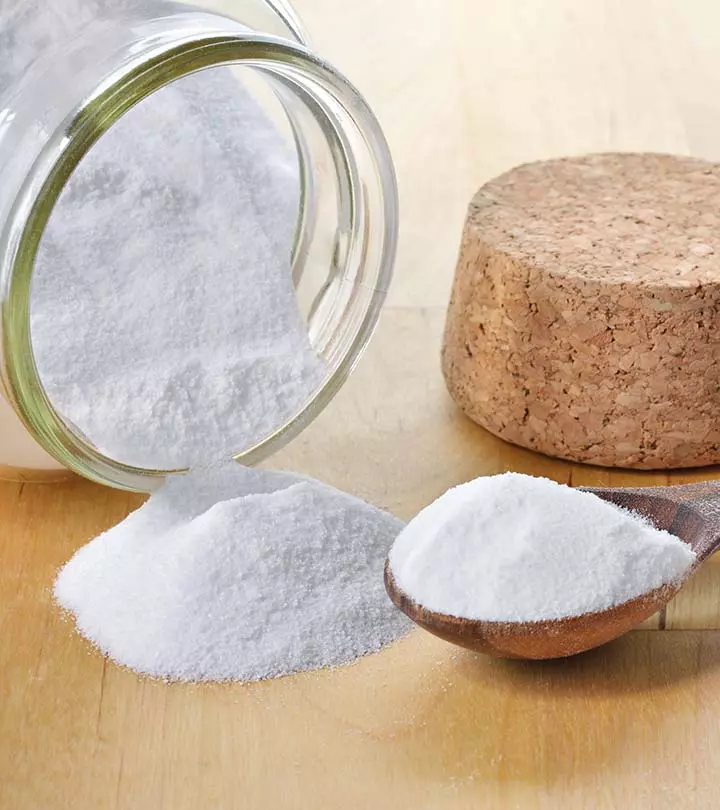
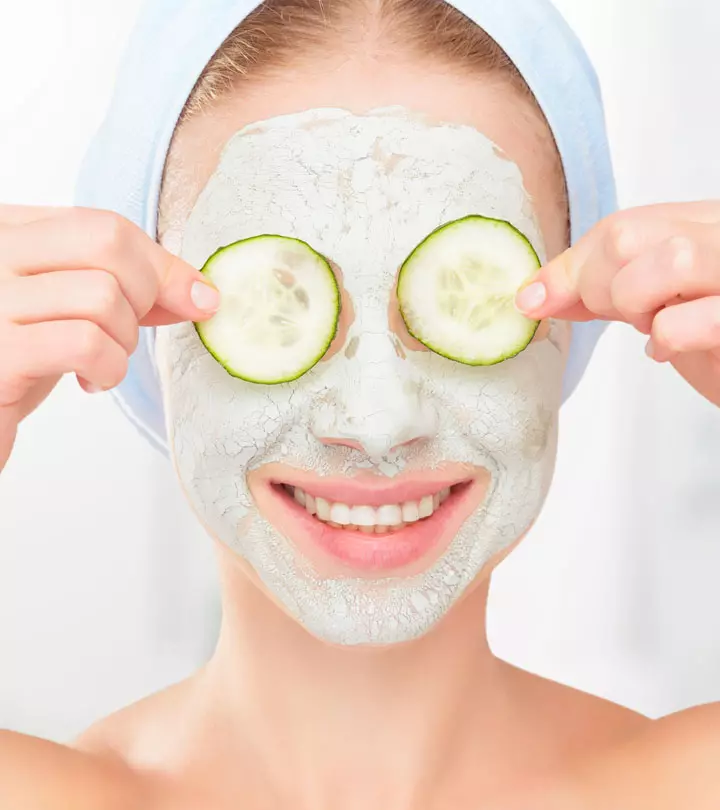


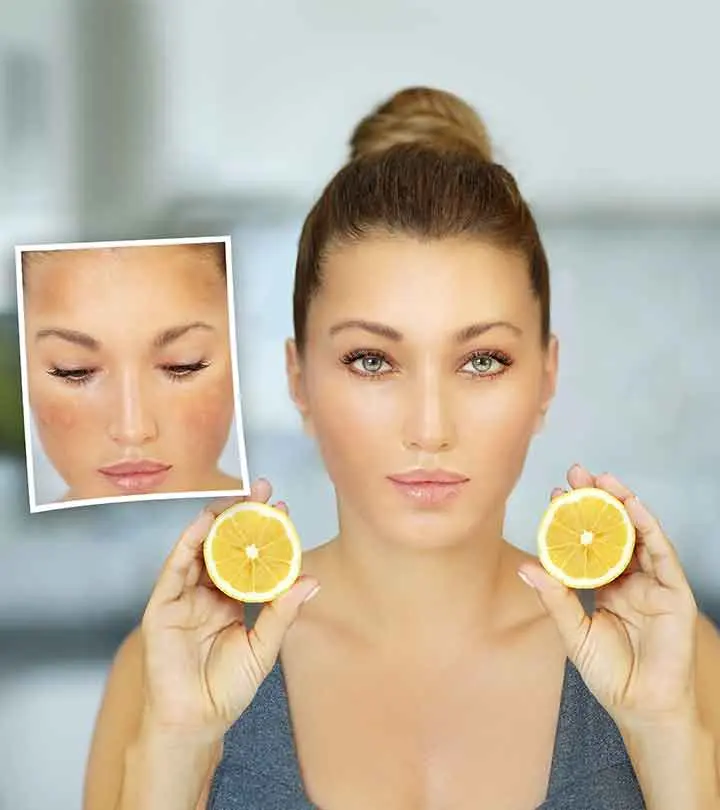

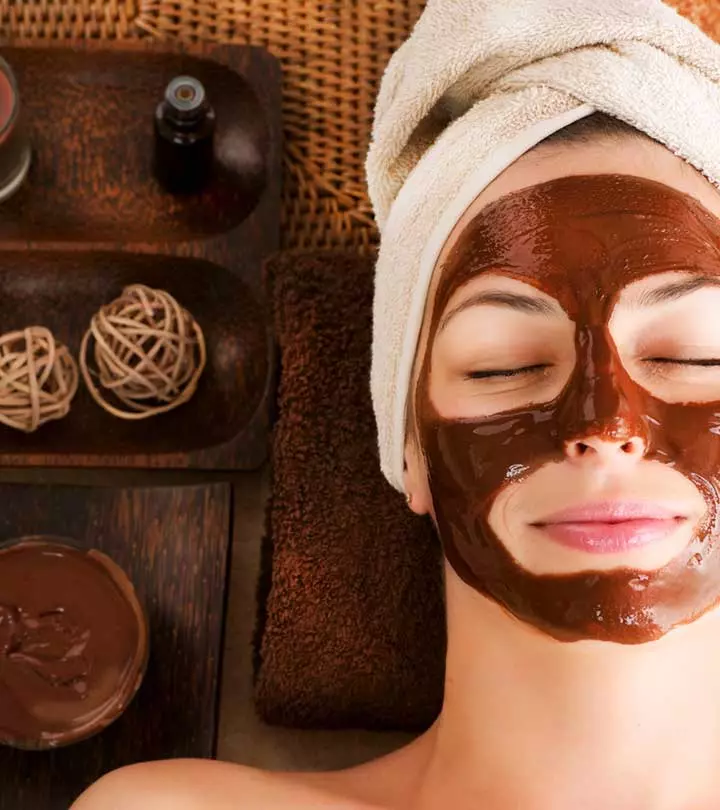
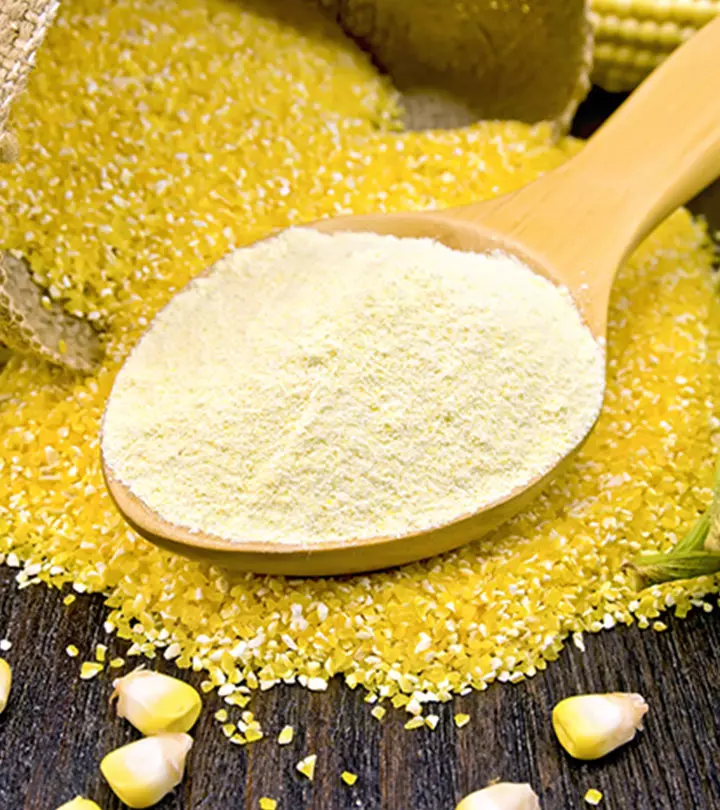
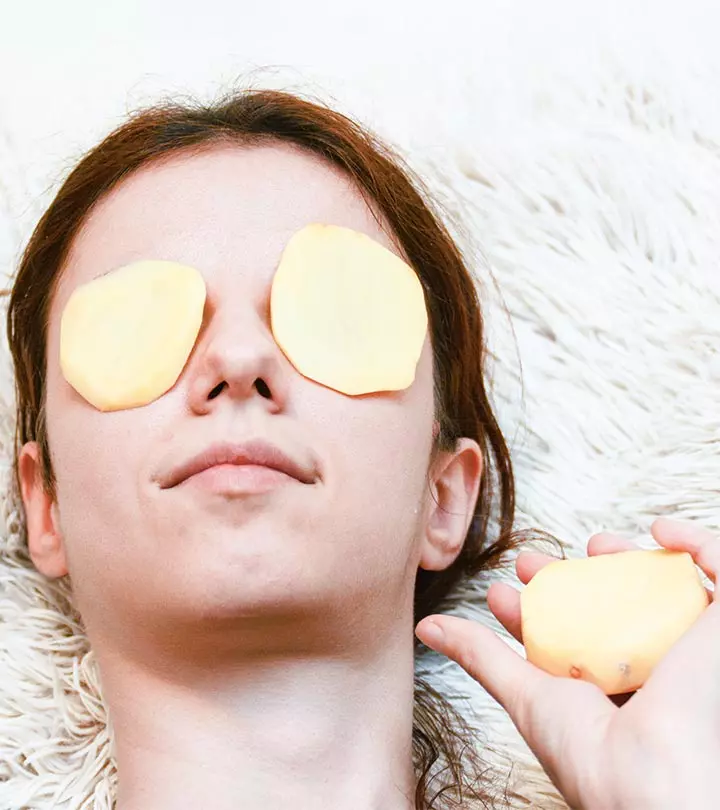
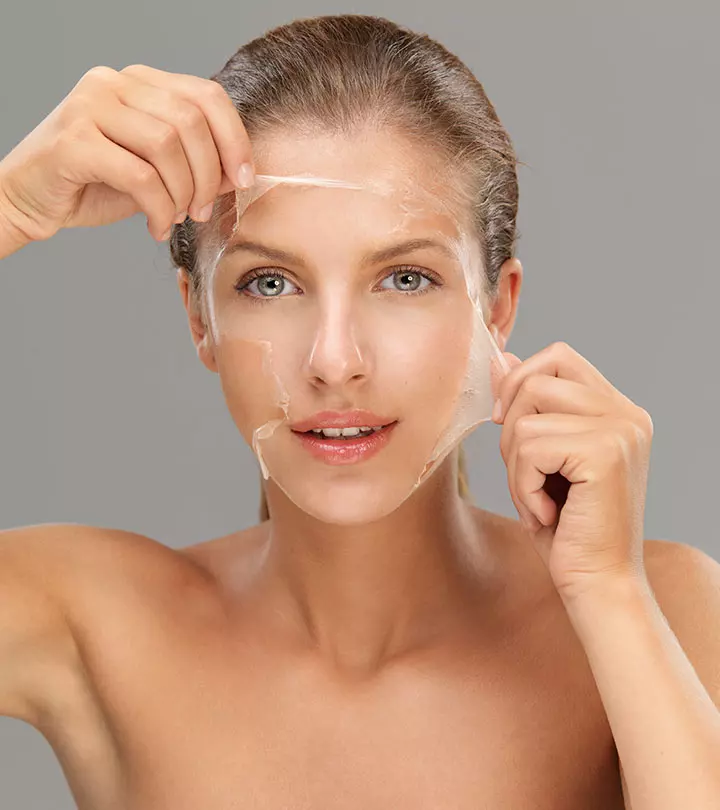
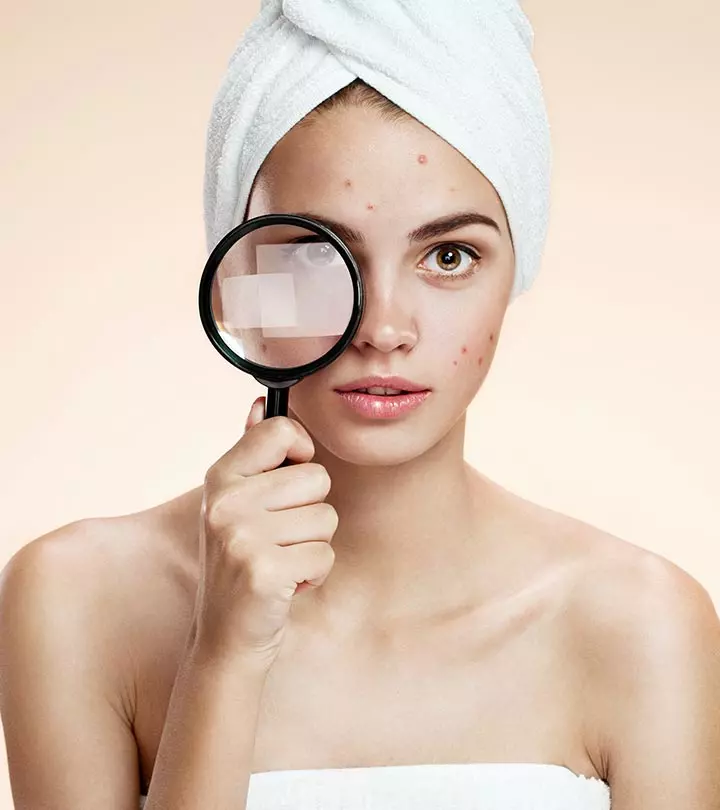
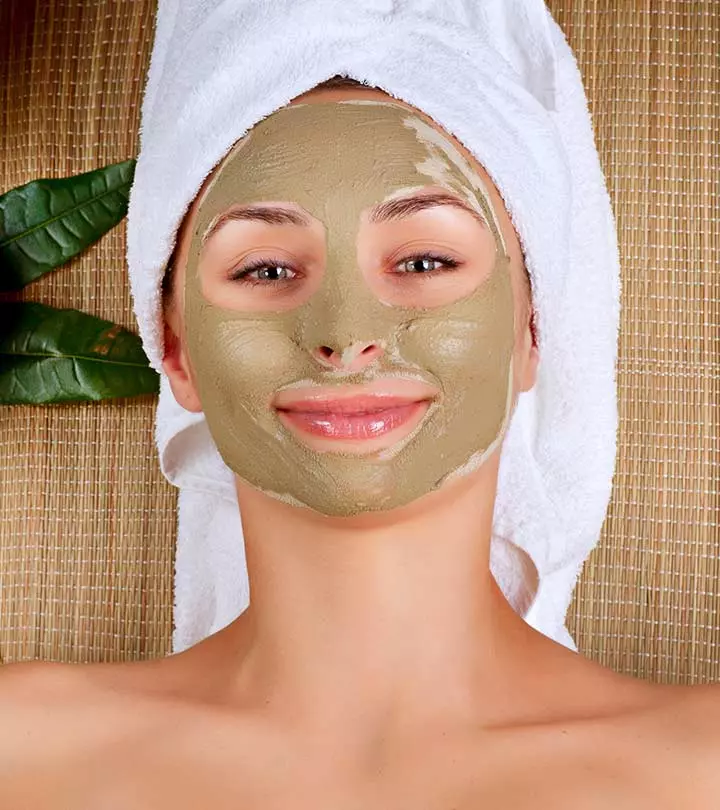
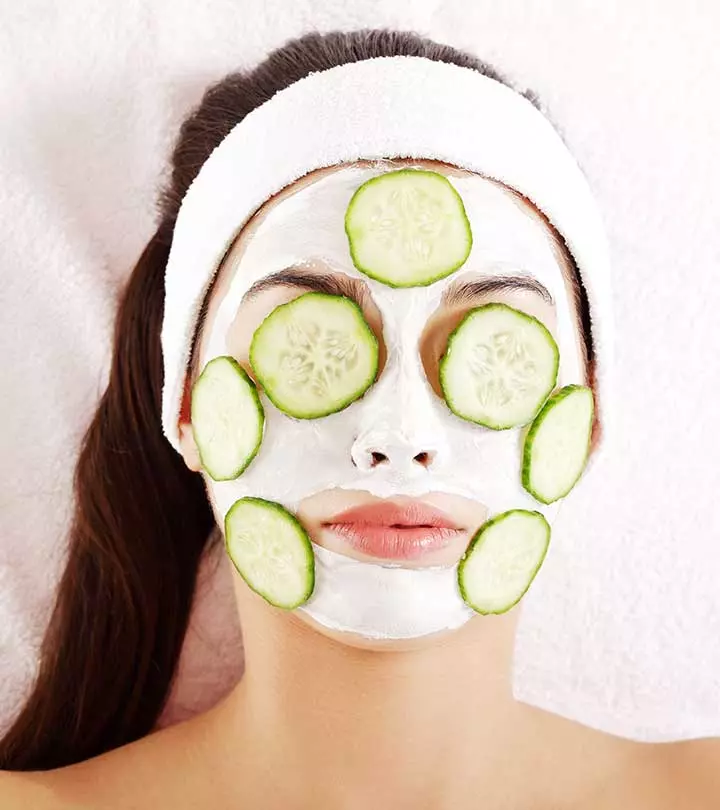
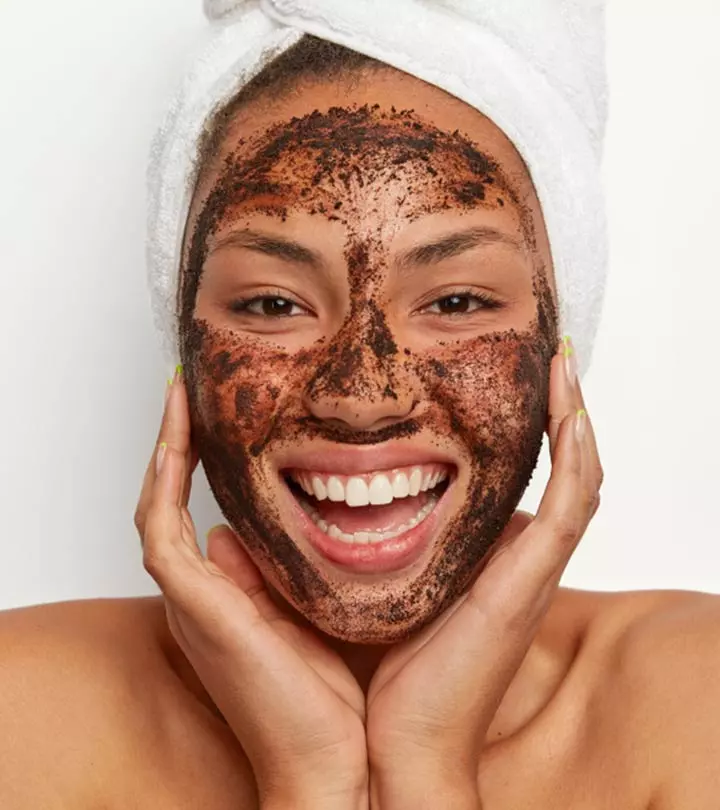
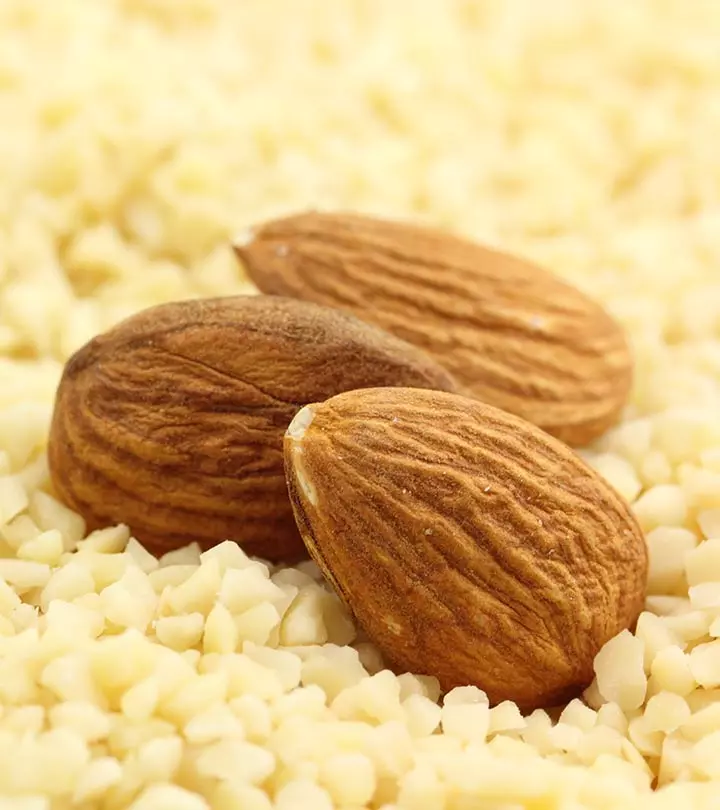
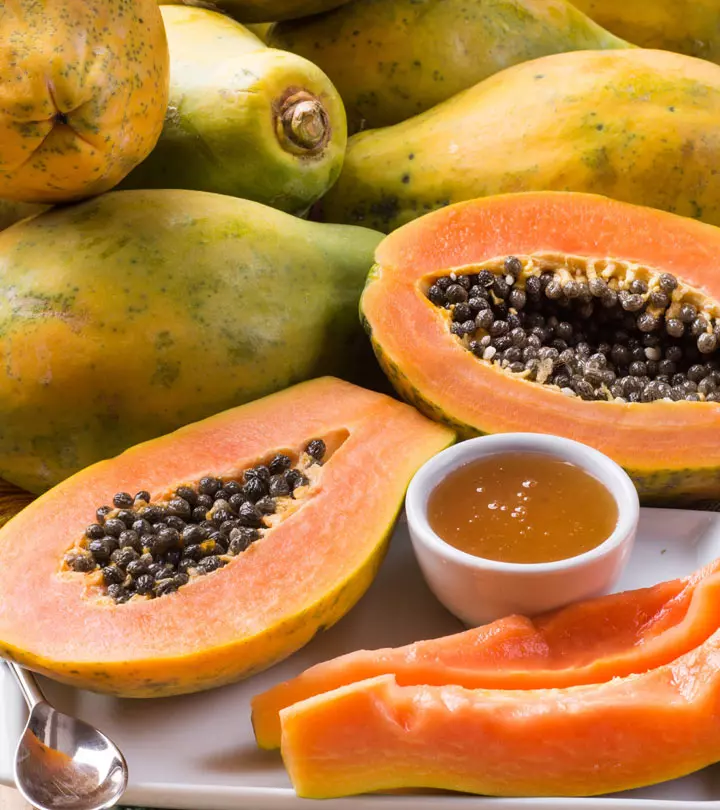
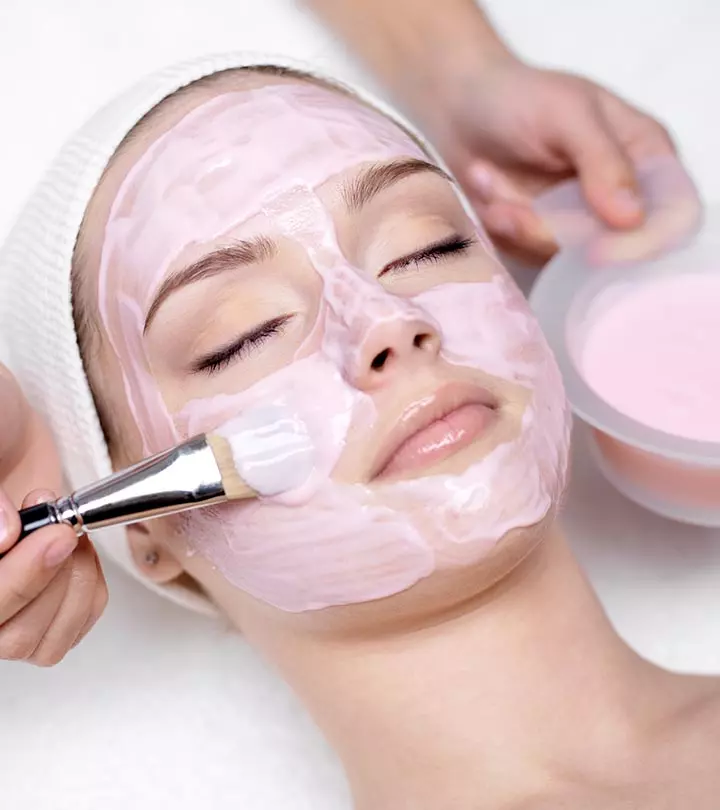

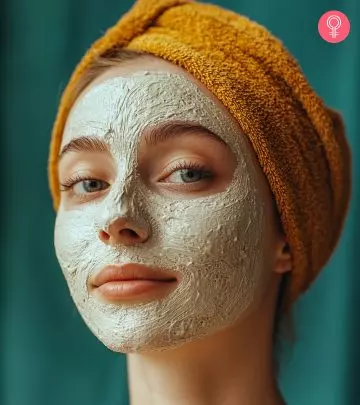
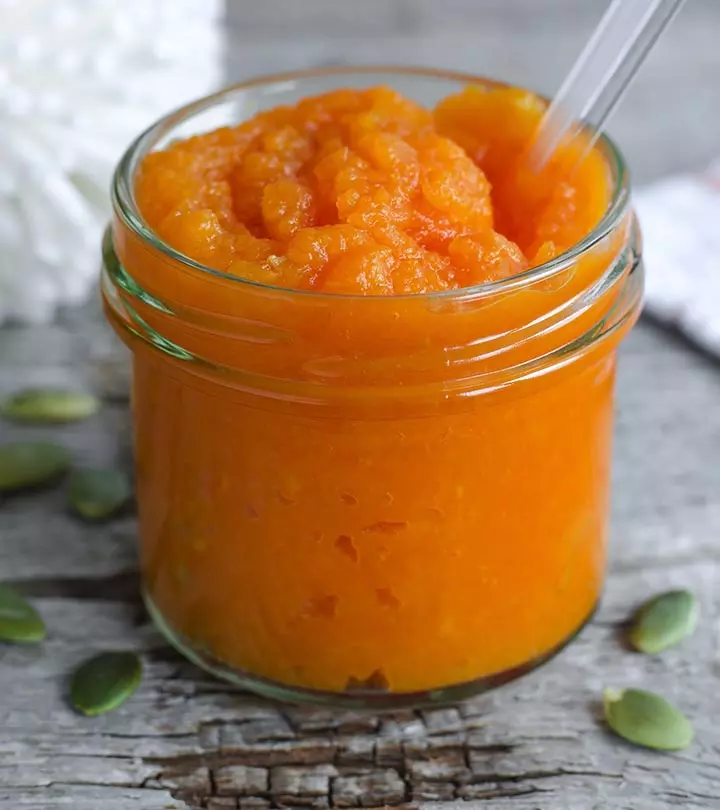

Community Experiences
Join the conversation and become a part of our empowering community! Share your stories, experiences, and insights to connect with other beauty, lifestyle, and health enthusiasts.